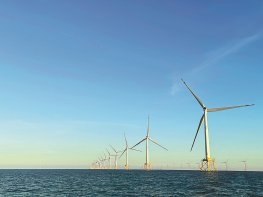Britain can 'ride the storm', says new PM
Truss reveals her top policy priorities but does not talk about climate or EU
Britain's new prime minister, Liz Truss, has set out her policy priorities to help the country "ride out the storm" of a challenging world political climate as she settles in to her new role.
Truss was confirmed as the country's next leader on Monday, when the result of the Conservative Party leadership election was revealed, with her beating former chancellor of the exchequer Rishi Sunak.
On Tuesday, her predecessor as prime minister Boris Johnson formally tendered his resignation to the Queen, and Truss took over, announcing her new-look cabinet straight away to get on with the job of governing, and making her debut at the weekly prime minister's questions session in the House of Commons on Wednesday.
In her first public address as prime minster, Truss said she was "honored to take on this responsibility at a vital time for our country", and spoke of her targets to help the country "face severe global headwinds".
Her three early priorities, she said, would be to "get Britain working again" with an economic revival fueled by tax cuts, to "deal hands-on with the energy crisis "by taking instant action to address the issue of rising fuel bills, and to put the National Health Service "on a firm footing", three policies that she said would "put our nation on the path to long-term success", adding that the country could "ride out the storm".
The speech made no mention of the issue of climate change or relations with the European Union, which remain strained following Brexit, particularly over the unresolved issue of the status of Northern Ireland.
Her first call to a fellow national leader was to Ukrainian President Volodymyr Zelensky, pledging the United Kingdom's continued "full backing" in the conflict with Russia. Zelensky replied that he felt the pair "will be able to build a profound and productive relationship", and invited her to visit Kyiv.
She also spoke to United States President Joe Biden, with the White House's account of their discussion mentioning that topics had included a "shared commitment to protecting the gains of the Belfast/Good Friday Agreement and the importance of reaching a negotiated agreement with the EU on the Northern Ireland Protocol", a still unresolved diplomatic problem that underpins all hopes of better relations between the UK and Washington.
In addition to the phone calls, Truss assembled her new cabinet, to get the business of her style of government up and running as soon as possible-and after a drawn-out Conservative leadership election, she has moved quickly to reward her supporters.
Many of Johnson's old guards, such as Home Secretary Priti Patel and Culture Secretary Nadine Dorries, had already tendered their resignations, but the new make-up is also notable for the absence of Sunak supporters, which BBC political editor Chris Mason described as "a near-total purge" of his backers, which will not be universally popular among Conservative members of Parliament.
More than 38 percent of them voted for Sunak in the final round of MP voting, as opposed to Truss winning less than 32 percent of that vote, before the final decision was made by party members, who chose Truss as leader.
Truss will be the country's fourth prime minister in six years, and it is hoped that her time in office could also bring more stability to the Cabinet, with observers noting that the ministerial reshuffle means that the country now has its 11th culture secretary in 12 years, and its fifth education secretary in the last 12 months.












